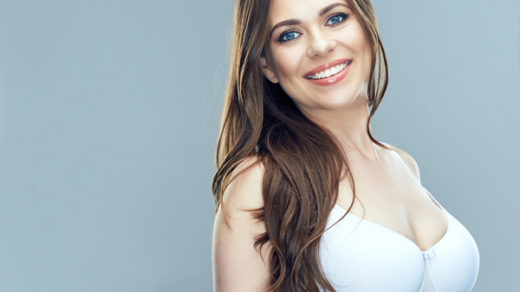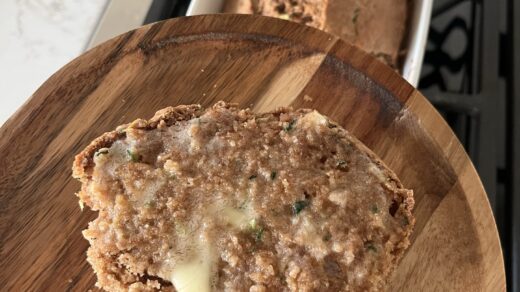
Hey friends,
Please enjoy this month’s guest article by Stefanie Michele– who you can find online here, or on Instagram here– below!
<3
Jessi Kneeland
I’m Afraid to Pass On My Body Image Issues to My Kids, by Stefanie Michele
I used to think that when I had children, my body image issues would fade. Being responsible for raising other humans felt like a big enough reason to finally “get over” my insecurities and focus on more important things.
But there I was, after the birth of my third daughter, still comparing my body to other women’s bodies in the school pick up line and in full breakdown mode getting dressed for Mom Nights Out.
Motherhood didn’t solve my problems because, as I now understand, body image isn’t about vanity. Body image, for me, was about safety, acceptance, identity, the plight of feeling “other.” Becoming a Mom actually highlighted these things as I navigated a world of making new friends, shifting life roles, and battling relentless inner Mom guilt.
And “Mom Guilt” now included the growing pressure of not passing my issues onto my kids. No one sends home training manuals for this stuff, and I was having a hard enough time managing it for myself. How was I going to teach my children to respect their bodies if I couldn’t respect my own?
It has been almost four years since I began actively healing my body image. Fortunately, the work I’ve been doing for myself has inevitably influenced the way my kids are learning to relate to their bodies, too.
If you’re reading this, the world of body neutrality is probably already within your awareness, and maybe you’ve begun deconstructing some of the inter-generational damage passed on to you. That’s a huge start for changing the way those cycles get translated forward.
Aside from doing the inner work (a process I highly recommend doing with a coach and/or body image professional), here are other ways I have learned to keep my kids from inheriting my body grievances, so they have a chance at writing a new story for themselves.

Be their body neutrality anchor.
Our kids live in a world of social media comparison and diet culture, and we cannot possibly control all of the messages they will receive in their lifetime. To believe that we can completely shelter them from those influences would be naïve. Instead, focus on being their anchor in the storm. They will hear other kids (and adults) talking about weight and diets at school, and they will be exposed to plenty of filtered faces and photoshopped bodies on their various screens. But if they consistently have a home base of unconditional acceptance in you (ie: “your body is okay exactly as it is”), they will inherit their own home base of self-acceptance, too. Your voice will become their internal narrative. They will be able to come back to that voice when they need to.
Don’t let them overhear your inner critic.
Before I had kids, I looked in the mirror and made audible sounds of frustration and disgust. I’d complain about how much I’d eaten and say things like “I look terrible in that.” Kids are listening. Notice where your language implies that something is wrong with your body or that it’s bad to look the way you do. (Many of my clients tell me that they learned to dislike how their bodies looked because their mothers disliked how their bodies looked. When their bodies started to grow curves and resemble their mothers’, what else could they think?) Commit to keeping your inner critic on the inside.
Keep “fat” a neutral term.
Many people consider the word “fat” to be an insult. When a child comes home and says that someone called them “fat,” or when they use the word in a derogatory way, parents are quick to correct this language by saying something like: “stop! That’s not nice!” or “You’re not fat!” But to tiptoe around the word or to confirm that it’s not a nice thing to say is essentially agreeing that it is, in fact, bad to be fat. Instead, treat the word “fat” like any other descriptor. Acknowledge that some people may use the word as an insult, but in our house we aren’t afraid of different body sizes.
Role model exercise/movement without a weight agenda.
When I was young, my mother only spoke about exercise as related to weight loss. (There was no other way of talking about exercise in the 80’s and 90’s, really.) Engage in movement with your kids to calm the body down, release energy, feel strong, and have fun. Create associations between their bodies and exercise that have nothing to do with how their bodies look, but rather how they feel, and let them see you doing this too.
Acknowledge them inside and out.
For a long time, I refused to call my daughters cute, pretty, or otherwise compliment their appearance. I want them to find their value in who they are, not what they look like. I still do. But by never acknowledging their appearance at all, I was drawing more attention to it. My refusal to say things like, “you look nice” started to feel like a chip on my shoulder, and they noticed. Now, I do let my daughters know that I think they are beautiful, but I also let them know they are smart, funny, kind, and creative. Body image resilience does not require that children never feel attractive, but instead that they have an array of characteristics from which to draw their confidence.
Don’t be afraid to speak retroactively.
No one is perfect. I’m still navigating this road and I make mistakes. When I realize that I may not have said the right thing or didn’t handle something the way I wish I had, I let my kids know (to the degree that it is age appropriate). Children gain a lot from hearing us admit that we don’t necessarily have all the answers, or that we are trying to learn, too. If you are in a situation you’d like to do differently, don’t hesitate returning to the conversation and letting them know retroactively. (Imagine if your parent had done that?!)
At the end of the day, we can only do our best. I don’t think parenting is a perfect science and there is so much room for error. But I do believe that our own awareness and empowerment can’t help but trickle down to the next generation, even if it’s not “perfect.”
You’re here, right? You’re doing a good job.
Please follow and like us:


